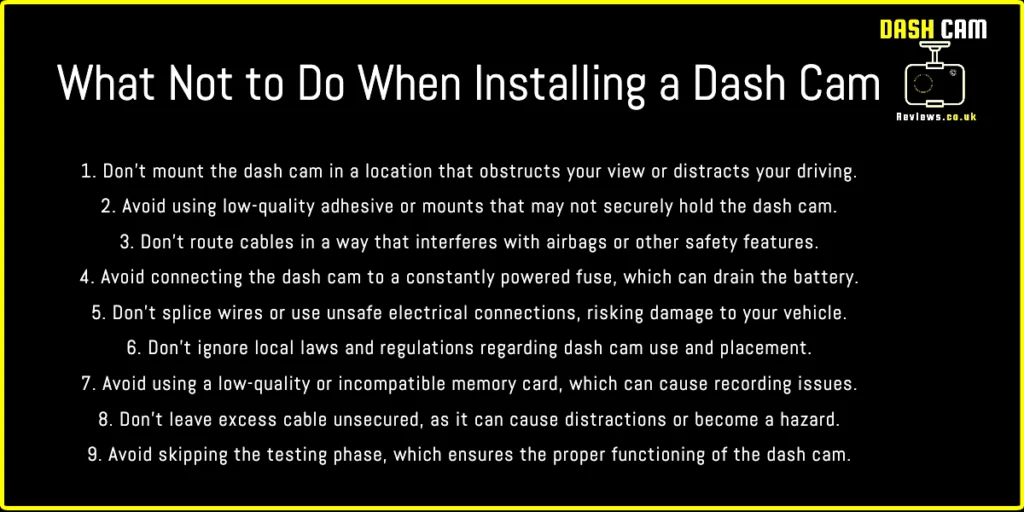Welcome to “Nissan Juke Dash Cam Install: A Comprehensive Guide”, where we will walk you through the entire process of installing a dash cam in your Nissan Juke.
As dashboard cameras become increasingly popular for their ability to provide valuable evidence in case of accidents, protect against insurance fraud, and improve driving safety, it’s no wonder that more and more Nissan Juke owners are looking to equip their vehicles with these handy gadgets.
In this article, we’ll cover everything from the installation process to the tools you need to get started, ensuring that you’ll be well-prepared to take on this project with confidence. So, let’s dive right into the world of Nissan Juke dash cam installation!
Importance of Dash Cams
Dash cams can provide crucial evidence in case of an accident, helping to determine fault and protect you from insurance fraud. They also offer security when parked, capturing potential vandalism or theft. In some cases, having a dash cam may even lead to discounts on your insurance premium.
Why a Dash Cam is Essential for Nissan Juke
Installing a dash cam in your Nissan Juke provides added security, peace of mind, and protection while on the road. It can also help to capture beautiful scenery on your trips, adding an extra dimension to your driving experience.
Preparing for the Installation
Before you begin the process of installing a dash cam in your Nissan Juke, it’s essential to gather the necessary tools and equipment and choose the right dash cam for your needs.
Tools and Equipment
You’ll need a few tools and equipment for the installation, including a trim removal tool, wire stripper, crimping tool, and a circuit tester or multimeter. It’s also a good idea to have some cable ties and electrical tape on hand to keep the wiring tidy.
Planning the Wiring Route
Before starting the installation, plan the wiring route for the power cable. This will help you to conceal the cables more effectively and ensure a clean, professional-looking installation.
Step-by-Step Guide to Installing a Dash Cam in Nissan Juke

Follow these steps to install a dash cam in your Nissan Juke:
Step 1: Mounting the Dash Cam
Mount the dash cam on the windshield behind the rearview mirror, ensuring it does not obstruct your view. Use the provided adhesive or suction cup mount, depending on the dash cam model.
Step 2: Running the Power Cable
Run the power cable from the dash cam to the vehicle’s fuse box. Tuck the cable behind the headliner, A-pillar trim, and door seals, using a trim removal tool to help guide the cable.
Step 3: Connecting to the Fuse Box
Connect the power cable to a fuse that is only active when the ignition is on. Use a circuit tester or multimeter to find a suitable fuse. Then, attach the cable using a fuse tap or piggyback connector.
Step 4: Concealing the Cables
Secure the power cable along the wiring route using cable ties or adhesive clips. Tuck any excess cable neatly away, ensuring that the cable does not interfere with any moving parts or safety features.
Step 5: Testing the Dash Cam
Start the engine and check if the dash cam powers on. Test the video recording and any additional features, such as GPS tracking, to ensure the dash cam is functioning correctly.
Additional Tips and Tricks
Consider these extra tips and tricks for an even better installation experience:
Hardwiring for Parking Mode
If your dash cam has a parking mode feature, you may need to hardwire it to a constant power source. Consult your dash cam’s manual for specific instructions on hardwiring.
Installing a Rear Dash Cam
If you opt for a dual-channel system with a rear dash cam, run the rear camera’s cable along the headliner, B-pillar trim, and door seals, connecting it to the front camera.
Maintaining Your Dash Cam
To keep your dash cam in top condition, follow these maintenance tips:
Regular Cleaning
Clean the camera lens and windshield regularly to ensure clear video quality. Remove any dust or dirt that may accumulate on the dash cam’s body.
Updating Firmware
Check for firmware updates periodically, as manufacturers may release improvements or bug fixes. Follow the instructions in your dash cam’s manual to update the firmware.
How Not To Install A Dash Cam.

Frequently Asked Questions
1. Is it legal to install a dash cam in my Nissan Juke?
Yes, installing a dash cam in your Nissan Juke is legal, as long as it does not obstruct your view of the road. Ensure that the dash cam is mounted correctly and securely.
2. Can I use my dash cam to record video while parked?
Many dash cams offer a parking mode feature, which enables the camera to record video while the vehicle is parked. This feature may require hardwiring the dash cam to a constant power source.
3. Will installing a dash cam void my vehicle’s warranty?
No, installing a dash cam should not void your vehicle’s warranty. However, it’s essential to ensure that the installation process does not damage any vehicle components or interfere with safety features.
4. Can I install a dash cam myself, or do I need a professional?
While installing a dash cam can be done as a DIY project, it may be beneficial to have a professional installation for a clean and secure setup, especially if you are not experienced with automotive electrical systems. However, by following this guide and taking your time, you can achieve a successful installation on your own.
5. How do I choose the best dash cam for my Nissan Juke?
Consider factors such as video quality, ease of use, additional features like GPS tracking and parking mode, and customer reviews when selecting the best dash cam for your Nissan Juke. Comparing different models and their specifications will help you make an informed decision.
Conclusion
Installing a dash cam in your Nissan Juke is an excellent way to enhance safety and security while driving. By following this comprehensive guide and using the right tools, you can achieve a clean and professional installation, ensuring that your dash cam works effectively and provides peace of mind on the road. Remember to maintain your dash cam and keep it updated for optimal performance. Happy driving!




